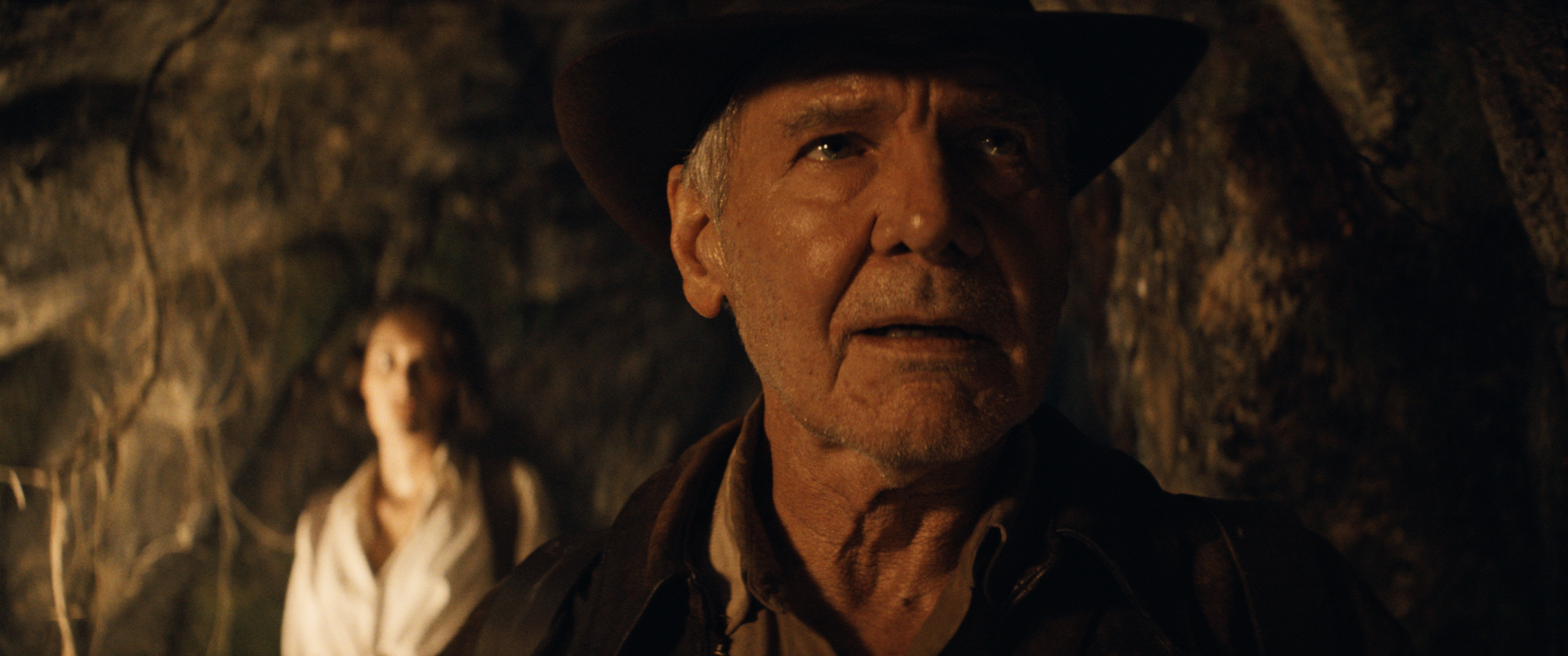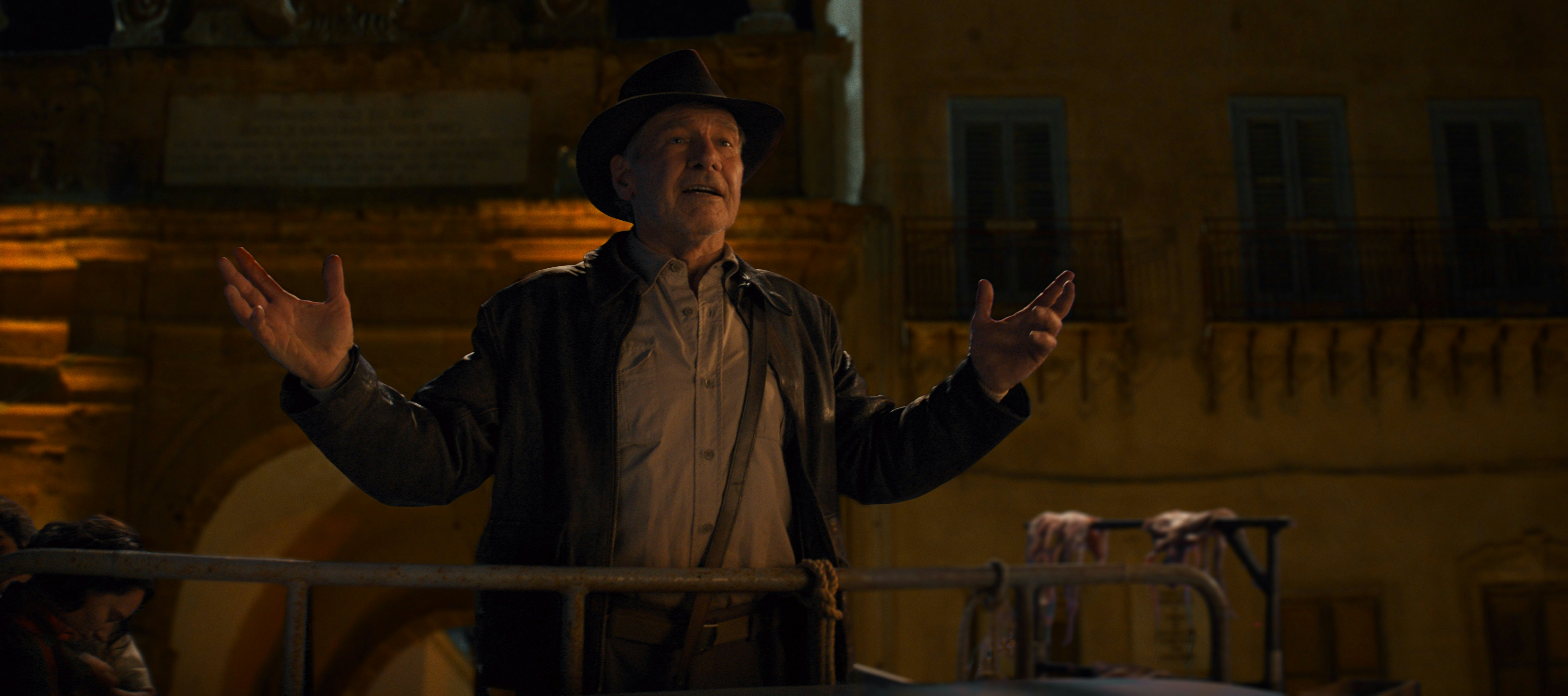
Indiana Jones and the Dial of Destiny is far from perfect. The James Mangold-directed film lacks the electric visual style of the franchise’s previous, Steven Spielberg-helmed entries, and its special effects range from serviceable to cringe-worthy. For these reasons and more, Dial of Destiny likely won’t rise to the top spot on anyone’s rankings of the Indiana Jones films anytime soon.
Even if it isn’t quite as exhilarating, tonally precise, or delightfully brutal as the franchise’s other installments, though, Dial of Destiny does love Harrison Ford’s Indiana Jones. The respect Mangold and his collaborators have for the film’s eponymous adventurer is palpable in every one of its frames — even those that feature an unfortunately de-aged version of him. In the final act of Dial of Destiny, Mangold even manages, much like he did with Hugh Jackman’s Wolverine, to give Ford’s Indy the emotionally resonant send-off he deserves.
Heads up! Major Indiana Jones and the Dial of Destiny spoilers ahead.

At the end of Indiana Jones and the Dial of Destiny, the film’s titular hero finds himself briefly stranded with his goddaughter, Helena (Phoebe Waller-Bridge), in 212 B.C. While there, Indy tells Helena to fly back to the present with her sidekick, Teddy (Ethann Isidore), and leave him in the past. He insists that he was always destined to end up lost in history and refuses to return home with his two companions. Helena, in response, knocks him out with a well-timed punch to the jaw.
The closing scene of Dial of Destiny follows Indy after he wakes up back in his New York City apartment in 1969. He finds Helena there, waiting and ready to explain why she didn’t leave him stranded in the past. When she subsequently tells him that he’s needed in the present, Indy, who has spent the entire film grieving the death of his son and the dissolution of his marriage to Marion Ravenwood (Karen Allen), asks who even wants or needs him around.
He gets his answer when his apartment door opens seconds later and in walks Teddy, Sallah (John Rhys-Davies), and Marion herself. In the conversation that follows, Marion asks Indy if he’s really “back” — a reference to not only their shared grief but also Indy’s lifelong obsession with the past. When Indy says he is, the two participate in a gentle, surprisingly sweet callback to their romantic boat conversation in Raiders of the Lost Ark.
The Dial of Destiny ends moments later with Ford’s Indiana briefly reaching through his fire escape window to reclaim his iconic fedora. The film, in other words, concludes on a decidedly quiet note. Even more subversively, it ends with Indiana Jones’ loved ones finally managing to save him from the constant, icy pull of the past.

Assuming that Dial of Destiny really is the Indiana Jones franchise’s final installment, there’s something surprising and genuinely beautiful about its decision to wrap up its hero’s decades-spanning story the way it does. After years of sifting through the complexities of history (both his and the world’s), The Dial of Destiny sees Harrison Ford’s Indy not only accept the present, but be embraced by it.
The film, consequently, offers a surprisingly nuanced take on the power and utility of nostalgia. Marion and Indy spend their final conversation essentially reenacting a previous moment in their lives, but their shared memories don’t pull them away from each other. Instead, they bring them closer together. As sweet as that is within the context of their relationship, it’s also an interesting piece of commentary on the place nostalgia should have in our lives. Should we use it as an excuse to further isolate ourselves? Or as a bridge between us and the ones we love?
Those are interesting questions for a film to ask, especially one about a man who has dedicated his life to preserving the past. By allowing him to both reunite with Marion and reclaim his fedora, The Dial of Destiny lets Indy ensure his own legacy without having to lock himself away in a glass case. Frankly, it’s hard to imagine a better ending for the swashbuckling archeologist.







